
Being able to prove who you are is more than a basic human right. Officially-recognized identification (ID) is also a means by which individuals can more easily access essential services and social and economic opportunities – from opening a bank account to gaining formal employment and receiving welfare payments—many of which are vital in making progress towards the Sustainable Development Goals (SDGs) and other development objectives like empowering women and girls and increasing financial inclusion. Governments and businesses also need trusted ways to verify peoples’ identities to provide more accessible, effective, and efficient services, particularly in the digital age where more transactions are done remotely.
And yet, as of 2018, an estimated 1 billion people worldwide lack an officially-recognized ID. Many are in the most marginalized and vulnerable groups of society; 47 percent are children whose births were not registered. Decades of global experience and research have revealed multiple causes behind this gap in access to identification, including onerous requirements and high direct or indirect costs of registration, discriminatory and outdated laws and practices, poorly equipped or trained bureaucracies, and low levels of knowledge or value of registration.
Beyond those without any officially-recognized ID, even more individuals have forms of ID that include errors in their data, are difficult to use or ill-suited for the digital age, and risk undermining their privacy. Owning an ID not enough: The systems which provide them and the legal and regulatory frameworks supporting them must also put people at their centers, be rights-based, well-governed and fit-for-purpose. These are the goals that ID4D is working to achieve through close partnerships with countries and a growing coalition of development partners.
The growing demand for inclusive and trusted ID (Good ID)
The demand for inclusive and trusted ID systems has grown in recent years, as countries scaled up their attempts to modernize public services, to digitalize and formalize their economies, and to expand their social protection programs, including in response to the COVID-19 pandemic. Accurate and inclusive identification of beneficiaries has been essential for countries to be able to cushion the socio-economic impact of the pandemic on lives and livelihoods.
Some countries that have had existing paper IDs, civil and population registries with high coverage for decades—or even centuries—have been able to gradually digitize and enhance them over time. However, save for some notable examples, these advantages mostly only exist in high-income countries.
Conversely, many developing countries with ambitious plans to improve the lives and livelihoods of their people and to transform their economies have faced significant challenges due to gaps in identification and civil registration. Either their existing civil registration and ID card systems have systematic challenges and are difficult to enhance, or they have few systems in place or ones with persistently low levels of coverage. Having records in paper form not only increases the risk of loss or damage due to a fire, conflict, or natural disaster—and makes them difficult and expensive to manage—it also comes with substantial data protection risks. Vendor and technology lock-in and legacy legal frameworks related to existing systems are other challenges that countries frequently have to navigate.

The three pillars of ID4D’s work
In light of these challenges, ID4D’s approach is driven by the belief that everyone deserves access to identification, but also that the systems that provide and govern ID must be improved to better serve people and achieve development goals. Launched in 2014, we help countries build ID systems and civil registries that enable all people to exercise their rights and to access services. We are a cross-sectoral initiative of the World Bank Group, encompassing teams working on digital development, social protection, healthcare, governance, financial sector, social sustainability and inclusion, data protection, and fragility, among others.
The initiative draws on expertise from multiple sectors and across the world, such as Belgium, Chile, Estonia, India, Indonesia, South Korea, Peru, Singapore, South Africa, Thailand, and Uruguay. It also closely follows emerging approaches and technologies such as decentralized identity, which is about to be piloted in the European Union through the creation of a framework for digital wallets, to help client countries understand the full suite of options available to them. For example, we have facilitated knowledge exchanges for countries to learn about federated ID systems in Australia, France, and the United Kingdom,
That work falls under three pillars:
- Thought leadership and analytics: Generating new knowledge and data on why and how to build trusted and inclusive ID and civil registration systems, as well as measuring the scale of the challenge through the seminal ID4D-Findex Survey and ID4D Dataset. ID4D also carries out impact evaluations, such as on ID verification and its effect on the experience of women social transfer beneficiaries in Pakistan, conducts qualitative studies and surveys to assess and improve people experiences, and supports countries to develop comprehensive strategies for monitoring, learning, and evaluation of ID systems and projects. We work to turn evidence and experience into concrete policy guidance including the ID4D Practitioner’s Guide (downloaded more than 20,000 times in over 200 economies). We have also worked with civil society to produce a guide for governments to proactively and meaningfully engage civil society organizations.
- Country and regional action: Providing tailored technical and legal assistance and mobilizing World Bank financing to support countries to implement context- and purpose-appropriate models of ID and civil registration systems: from modernizing civil registries to introducing various types of digital IDs for online transactions. More than 50 countries are currently benefiting from technical and financial assistance, most of which have active or pipeline IDA or IBRD funding. ID4D also works closely with the Global Financing Facility for Women, Children and Adolescents (GFF) to strengthen civil registration and vital statistics.
- Global platforms and convening: Promoting good practices through advocacy, creation of norms, collaboration with global and local civil society organizations (CSOs) and contributing to digital public goods like open standards and open-source software. ID4D played a convening role in the development of the Principles on Identification for Sustainable Development bringing together development, civil society, private sector, and economic organizations to have a shared vision on how countries can maximize the developmental impact while mitigating the risks. Exchanges between countries help policymakers and practitioners identify common challenges and adapt lessons and good practices from other countries.
Countries across the world—such as Benin, Gabon, Georgia, Indonesia, Morocco, Mozambique, Nigeria, the Philippines, and Tonga—are working to strengthen and improve ID systems to ensure access and identity for all, deliver better and more inclusive services, enhance rights in the digital age, and support other development goals that can dramatically improve all people’s lives and livelihoods.
Enhancing inclusion
Inclusion is the first pillar of the Principles and is at the heart of what we do. ID systems and civil registries must be designed to be universally accessible and free from discrimination. To understand the barriers and difficulties people—and especially the most vulnerable—face in accessing identification, ID4D has analyzed survey data, examined gender barriers, compiled good practices on enrollment, and created guidance for disability- and sexual orientation and gender identity-inclusive design. This work has fed directly into reforms and new initiatives to ensure universal access to ID.
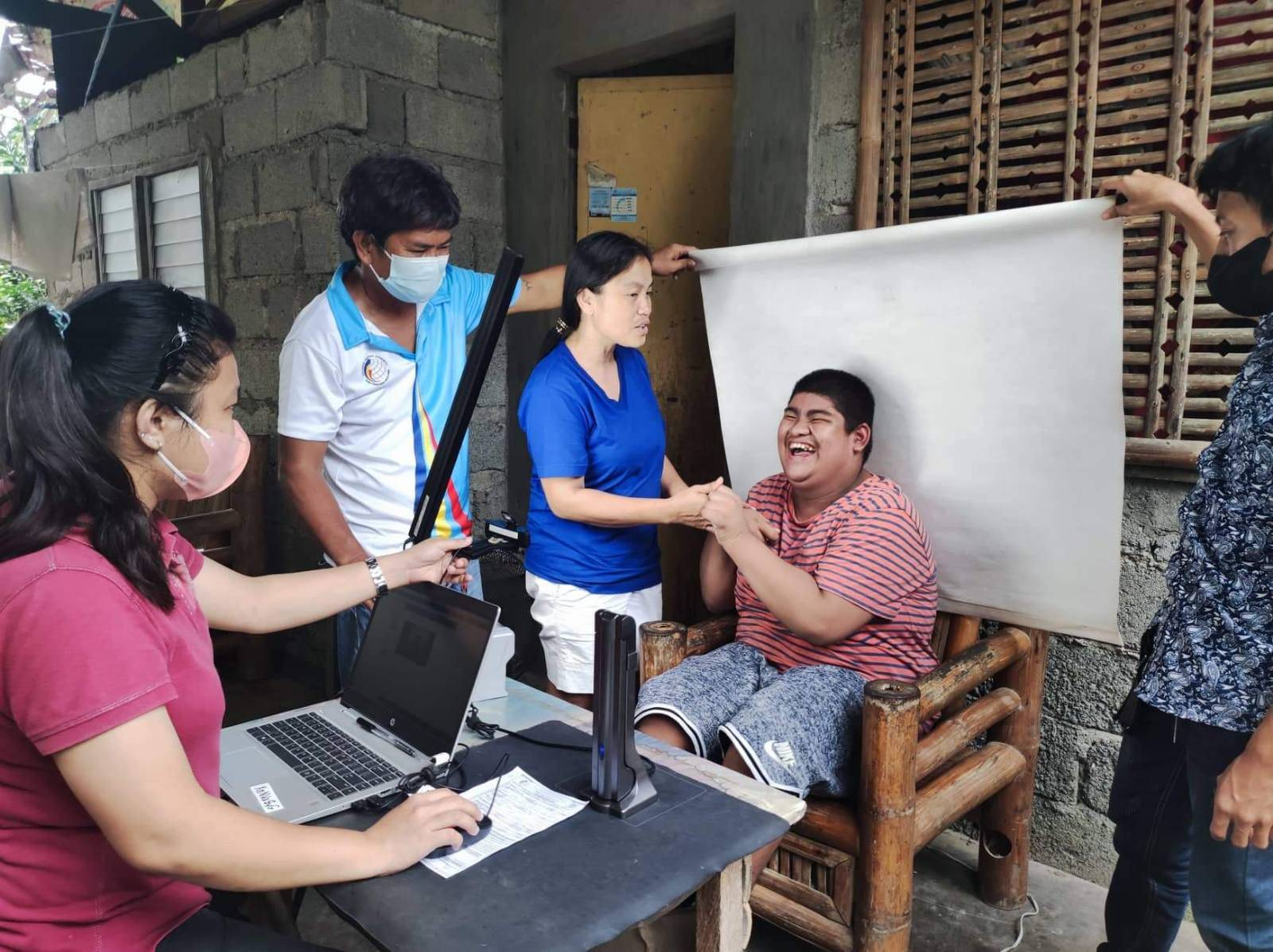
In Nigeria, we studied barriers faced by women and girls, to NIN enrollment which resulted in, the National Identity Management Commission (NIMC) implementing the recommendations from the study through the Nigeria ID4D program. These recommendations include locating registration centers in places that are easily accessible for women (such as markets and schools) and introducing exception handling so that people can still register even in the event of technological failures during enrollment. Our qualitative survey in Rwanda helped to identify areas of difficulty or inconvenience for birth registration that the National Identification Agency (NIDA) has used to simplify processes.
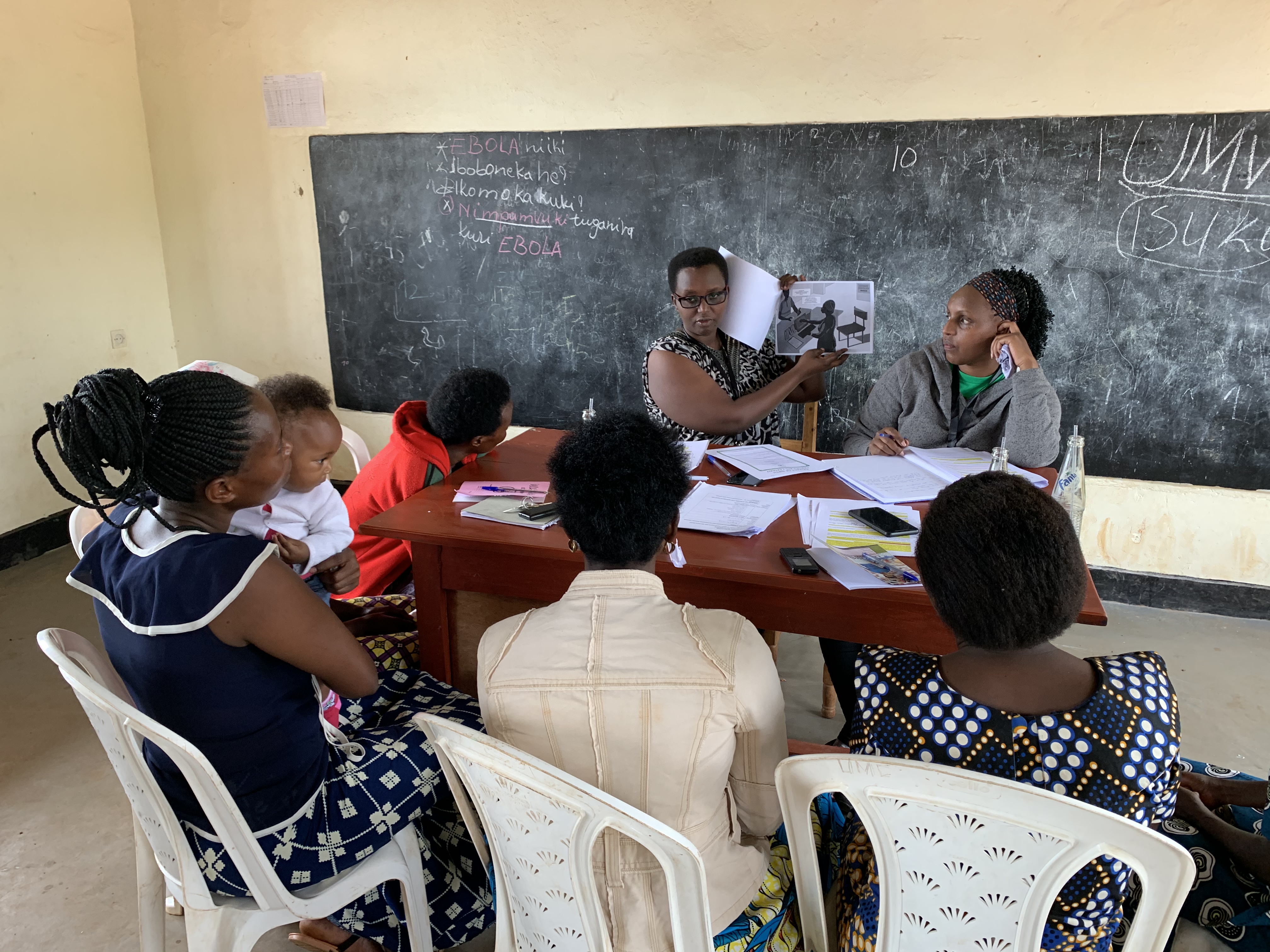
Recently concluded research in Timor-Leste has informed the design of an inclusive education and awareness campaign for the forthcoming unique ID system, which will work closely with civil society and community organizations. Similarly, consultations with civil society and poor households in the Philippines identified direct and indirect costs in obtaining a copy of their birth certificate that may be difficult for low-income individuals and people in remote areas. These are the people who would have the most to gain from having a national ID. To ensure inclusive enrollment, the Government adopted a policy of accepting any one of dozens of official documents for registration for the new Philippine Identification System (PhilSYs). Since early 2021, more than 73 million Filipinos have registered, demonstrating the impact of the Philippines’ focus on accessibility. This high adoption, considering the PhilSys is voluntary, also highlights the value that Filipinos believe the PhilSys will bring to them in terms of services and economic opportunities.
All of this research and more has confirmed that one of the most common barriers to obtaining an officially-recognized ID are difficult requirements to prove nationality or legal residence. In countries with complex or discriminatory nationality laws and without strong civil registries that have recorded births in an accurate and timely fashion, this can create significant problems for many, and especially vulnerable groups who often lack a birth certificate. This reality is the case in many countries in Africa, where most people without birth certificates and other officially-recognized identification live.
There is no one-size-fits-all model to combat this common source of exclusion, which often has long historical roots. We will continue to work with governments and civil society towards finding solutions aligned with the objectives set out in the Principles. Countries such as Ethiopia, Gabon, Guinea, and Togo have elected to remove of the requirement to prove nationality or legal residence to access an official ID. In Indonesia and Mozambique, ID registration and civil registration is combined into a single window process to streamline processes, with a focus on those most likely to face difficulties with documentation. In Cabo Delgado, Mozambique, more than 20,000 internally-displaced persons, including children, have accessed this integrated ID and civil registration service during July and August 2022, which has been supported by the Digital Governance and Economy (EDGE) Project.
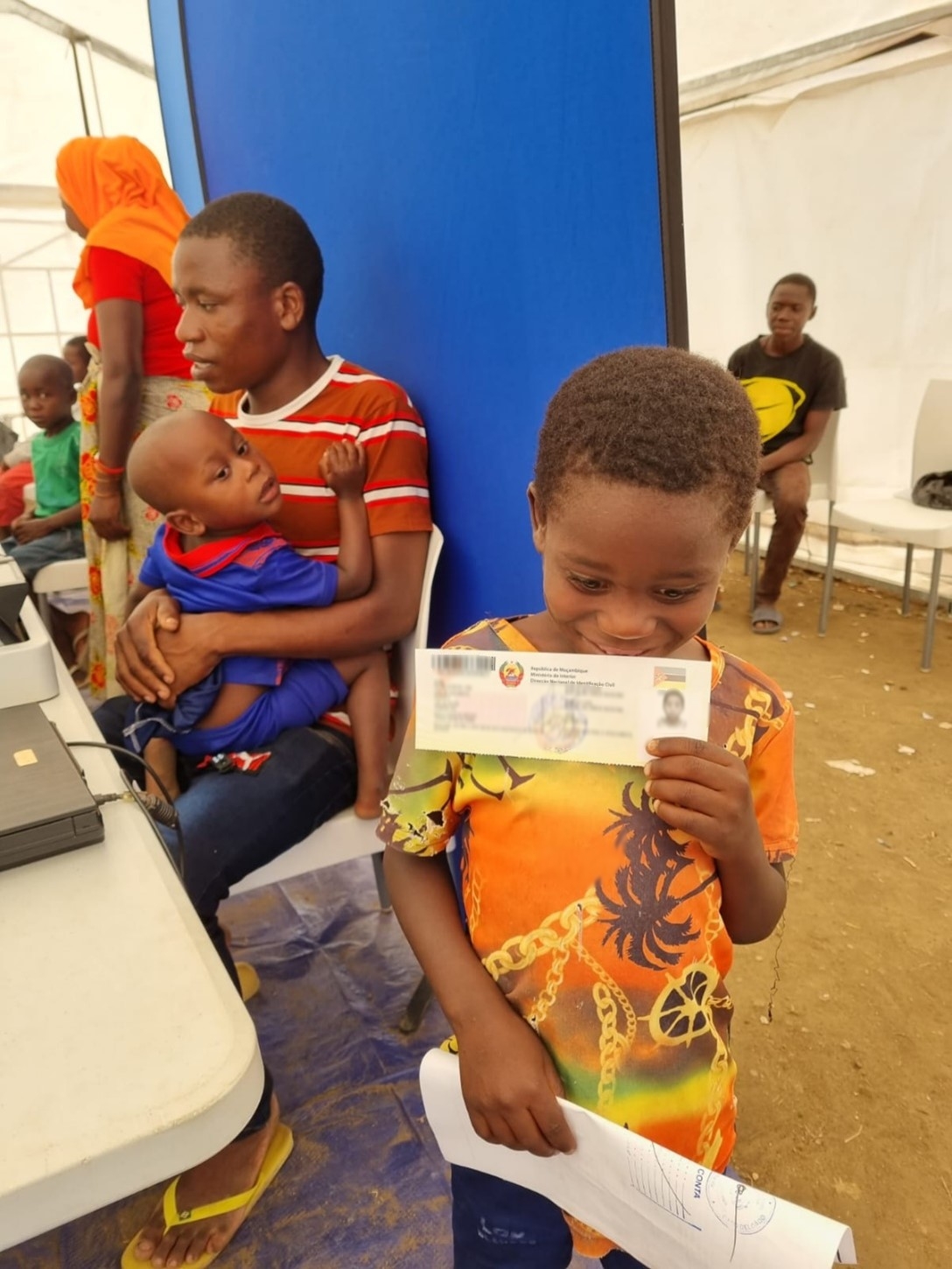
Across our work, ID4D is helping countries link their ID systems to birth registration to reduce problems for future generations. For example, Benin has operationalized new reforms for integrating the foundational ID with civil registration by providing training for health workers, civil registration agents and local ID units to register births in the National Registry of Natural Persons and thereby freely obtain a unique ID number. In collaboration with the GFF, we have provided technical assistance to NIDA in Rwanda to facilitate birth registration by health workers as part of the Strengthening Social Protection Project. ID4D is collaborating with the Indonesian Ministry of Home Affairs to pilot innovations to improve death registration coverage, which is also essential for public health, development planning, and other goals.
Building trust
Trust is a bedrock for the success of any ID and civil registration system. This includes both confidence that personal information is accurate (and not stolen or fraudulent), but also that people can trust the system to responsible management their data. While 1 billion people lack an officially-recognized ID, many more have insecure or untrusted forms of ID and civil registration. Some also live in countries where these systems are ill-equipped to support service delivery, or are used in ways that worsen inequality, or fail to adequately protect personal data.
That is why we focus on creating trusted and responsible ID systems that support, development goals. This begins with carrying out ID Enabling Environment Assessments (IDEEA) to understand the laws, regulations, and institutions governing ID and civil registration systems, including for data protection and cybersecurity and continues with active support for reforms.
In several countries, important legal reforms are underway. Technical assistance to incorporate international good practices on inclusion and data protection was provided for ID laws and regulations enacted or amended in Morocco, Mozambique, the Philippines, and Somalia. In Ethiopia, we have worked closely with the United Nations Economic Commission for Africa to support development of a draft Digital ID Proclamation, and the Digital Foundations Project has facilitated extensive public stakeholder consultations. Ethiopia has published documents related to their Fayda ID program on their website, leading the way in terms of transparency. The Samoa Connectivity Project sponsored community consultations on the new National Digital ID bill in every village of the country. Nigeria is reforming the NIMC Act, including to remove provisions that do not comply with the Principles, such as open access to the system for non-nationals, including refugees.

Beyond legal frameworks related to ID and civil registration, countries are accelerating the development of broader data protection laws and regulations that will have positive impacts across the economy. For example, ID4D provided advice for Rwanda’s recently enacted law on the protection of personal data and privacy. Recommendations have also been or are being provided to Ethiopia, Indonesia, Maldives, Nigeria, and Tonga, among others, to promote adherence to international standards related to data subject rights, transparency, fairness, lawfulness and accuracy of data. For example, submission of the personal data protection bill to Indonesia’s parliament was supported by the Financial Sector Reform Development Policy Financing Program in 2020 – the bill was approved in September 2022.
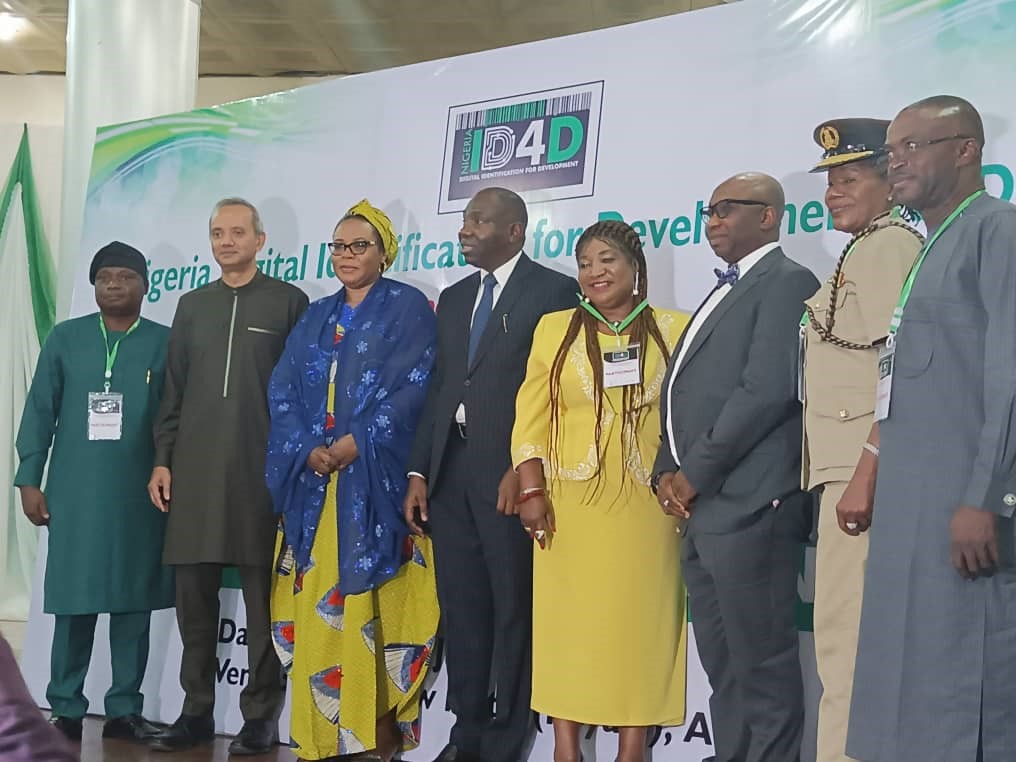
Building on and complementing efforts to strengthen legal frameworks for data protection, ID4D also assists countries to incorporate ‘privacy by design’ approaches and privacy-enhancing technologies into how their ID and civil registration systems operate. In line with the principles of data minimization, Nigeria has substantially reduced the number of attributes collected in its national ID system, removing information that is unnecessary for the purposes of identification and authentication. Similarly, Ethiopia’s new ID system will collect minimal attributes and, to reduce risks of discrimination, will not collect any information on ethnicity unlike previous ID systems in the country. In Lesotho, we helped the Ministry of Home Affairs to design a new identity verification service that shifted the approach from exposing personal data to one-to-one authentication, which has reduced data privacy risks. Indonesia has examined about how Singapore’s Myinfo consented data sharing platform gives people more agency over their personal data and is planning to adapt these approaches for their context
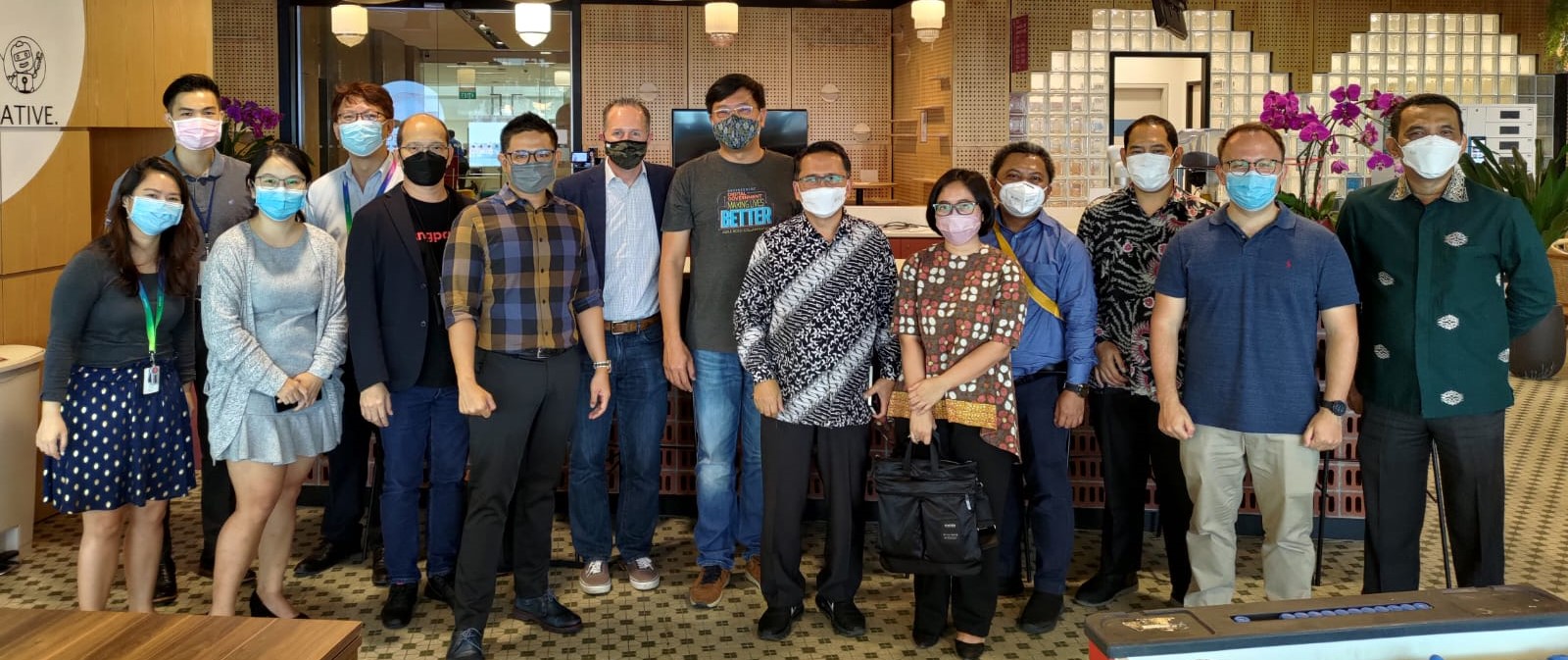
Recognizing the risks of ubiquitous use of a permanent unique identifier, ID4D is also working multiple countries to adopt tokenization. In the Philippines, where it is common practice today to submit IDs when entering buildings and to have an ID scanned or photocopied as part of the identity verification process, the Government has printed a temporary, replaceable token (known as a PhilSys Card Number), which figures prominently on the face of the new ID cards, and provided the permanent PhilSys Number (PSN) separately, while encouraging the permanent PSN to only be used in exceptional circumstances. This relationship is similar to the difference between a bank or credit card and account number, with the card being able to be used for transactions but changing for every card issued (including when it is compromised), while the account number remains the same throughout. The use of tokens will also reduce the risk of correlating data across different databases.
Better ID for a better world
ID systems and civil registries are not an end-goal in themselves, but instead crucial tools for achieving inclusive and sustainable development, including respect for human rights and the rule of law. This is in line with the World Bank’s twin goals of ending extreme poverty and boosting shared prosperity, and a range of other positive outcomes such as financial inclusion, enhancing social safety nets, and empowering women and girls. The countries mentioned above are pioneering these outcomes, with a greater focus on inclusion and trust. We have been pleased to play a role in their journeys, to various degrees, and look forward to continuing the initiative’s emphasis on context-appropriate, people-centered, and rights-based ID and civil registration systems. As demand continues to grow for inclusive and trusted ID systems to empower people and realize the SDGs, this work will be more important than ever.
We welcome opportunities to partner, collaborate, and discuss. Please reach out via email to id4d@worldbank.org
